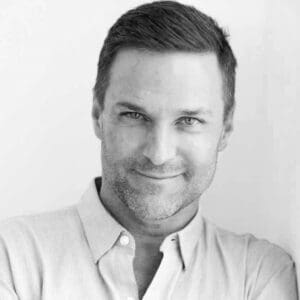Introduction to Hormone Replacement Therapy
Just as a reminder, this is written by our very own Lindsay Wojciechowski, a FNP-CA on our team here at the Energy4Life Centers.
As a health care provider who has followed both men and women for over 15 years, I can confidently say that many of my healthiest and most active patients are benefitting from bio-identical hormone replacement therapy (HRT) as they age. I am disappointed that hormone replacement is still controversial in the conventional health care system.
Women, in particular, have suffered for a long time because of the misunderstanding and confusion created by inaccurate interpretation of past studies. Hormones are crucial for all stages of life and we are all healthier when those hormones are in balance.
The Efficacy and Misconceptions of HRT
The benefits of HRT include the relief of hot flashes, night sweats, fatigue, weight gain and irritability, as well as bone protection, decrease in colon cancer risk, improvements in mood and sleep, and a decrease risk for Alzheimers disease (by almost 50%). It is unfortunate that these benefits have been overshadowed by the side effect concern.
The Women’s Health Initiative (WHI) was a study done in the early 2000’s as a follow up to the Nurses Health study done by Harvard, showing significant improvement in perimenopausal symptoms for women taking HRT. The WHI was flawed for many reasons. For starters, the average age of participants was 63, more than 70% were obese, more than half of them smoked and had hypertension. The study was discontinued when data leaked by JAMA suggested possible increased risk of breast cancer and clot/heart disease.
In the years since the data was released, several important conclusions have been made. The increased risk of breast cancer was “almost statistically significant” and was only noted in the group receiving both estrogen and synthetic progesterone (participants either received both estrogen and progestin, estrogen only, or placebo).
An actual statistical significance means there is a 1/20 chance that there is a link, and in this case, there was not one. Women in the study who took estrogen only had zero increase risk of breast cancer. We now understand that the synthetic progestin used in the study for those on both estrogen and progestin can slightly increase ones risk. Most prescribers now use bio-identical progesterone in their HRT therapies.
It is also important to note that women who took estrogen replacement therapy before the study had a lower incidence of breast cancer overall, and women diagnosed with breast cancer (while on HRT) had better prognoses than women who were not on it at the time of diagnosis.
Addressing Risks and Individualized Approaches in HRT
In regards to the concern of clotting risk and atherosclerosis, we know that if a female without risk factors for heart disease/atherosclerosis starts HRT within 12 months of her last menses, there is no increased risk of clot. If she starts it within 10 years of menopause, there is a very unlikely risk of clot. There is however a risk of clot during the 1st year of HRT for a woman with evidence of developing atherosclerosis more than 10 years out from menopause. For that reason, most providers do not prescribe HRT for this population of patients.
As we have already noted, the participants in the WHI had an average age of 63 and had many other co-morbidities adding to their risk of pre existing atherosclerosis.
The New York Times published their own article in February of 2023 outlining some of the problems with the WHI, you can read it here.
An NIH study of 7 million post-menopausal women published in May 2022 showed that women on HRT live 20% longer, have reduction in neurodegenerative disease, as well as statistically less breast, ovarian, uterine, lung and colorectal cancer. It is important to note that the correct estrogen and progesterone replacement products need to be used. Oral estrogen is associated with risks (as opposed to transdermal) and bioidentical progesterone should always be used. You can read that study here.
A Holistic Approach to Addressing Hormones
It is important to note that when addressing hormones, there are other components to look at, specifically the health of the gut and our stress response.
The “Estrobolome” is the collection of bacteria in the gut which is capable of metabolizing and modulating the body’s circulating estrogen. The estrobolome affects estrogen levels, which in turn can impact weight, libido and mood. The functional medicine model starts with the gut first.
In regards to stress, it is important to know that estrogen, progesterone and testosterone are made from our cholesterol, but so is cortisol. During periods of acute stress, the production of hormones is shunted to produce more cortisol. This is good for short term stressors but is unhealthy if chronic.
Chronic stress creates a high cortisol state on a regular basis, reducing the production of progesterone and creating a misbalance in our system.
Conclusion: Comprehensive Care and Expanding Services
HRT is not for everyone, and each patient interested in possible HRT and hormone optimization should discuss their individual case with their provider. A comprehensive approach looking at stress hormones, gut health and individual risk factors is essential. I am happy to report that in addition to functional and integrative consults, we are now offering cervical cancer screening (pap smears) to a visit for an additional fee. Our hope is to simplify women’s wellness and the visits required for thorough, comprehensive care.
Please call the front desk at 435-962-6363 for pricing and scheduling, or email our center at [email protected] with the subject line “Hormone Replacement Therapy Info”. Thank you.
Lindsay Wojciechowski, FNP-C, and the Energy 4 Life Centers team.

